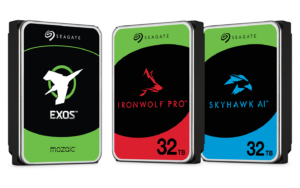Google Cloud last week unveiled its latest AI platform, Gemini Enterprise, designed to automate complex business processes across departments and applications.
The aim is for employees to access Google AI through an intuitive chat interface that acts as a single-entry point for workplace AI. Behind that interface, the platform unifies six core components that together form an end-to-end enterprise AI system.
The Google AI technologies that are integrated include Gemini models, first-party and third-party AI agents, and the core conversational AI and orchestration capabilities that were previously known as Google Agentspace.
At its core, Gemini Enterprise is powered by Google’s most advanced Gemini model family, promising the intelligence to drive different tasks.
The platform also includes a taskforce of pre-built Google agents for specialised jobs such as deep research, idea generation, and data insights. Organisations can augment this with custom-built agents developed in-house or through Google Cloud’s partner ecosystem.

A no-code workbench allows employees across departments to design and deploy AI agents that automate business processes.
To ensure relevance and accuracy, Gemini Enterprise connects securely to a company’s data wherever it resides — from Google Workspace and Microsoft 365 to platforms such as Salesforce and SAP — and is managed through a central governance framework for security and compliance.
Built on the principle of openness, the platform features native integrations with industry standards such as Google’s Agent2Agent (A2A) protocol for inter-agent communication, Agent Payments Protocol (AP2) for secure transactions, and Agent Development Kit (ADK) for building modular systems. Supported by more than 100,000 partners, this framework promotes interoperability and innovation.
“Gemini Enterprise is designed on the premise that true business transformation in the era of AI must go beyond simple chatbots,” said Sundar Pichai, chief executive officer for Google and Alphabet.
He said Gemini Enterprise is built with Google’s most advanced Gemini models, enabling employees to interact directly with their company’s documents, data, and applications.
Expanded Agent Ecosystem
Gemini Enterprise is also launching with an expanded suite of pre-built agents, including:
• Deep Research Agent: Synthesises information across internal and external sources into comprehensive reports.
• Idea Generation Agent: Develops and evaluates innovative ideas using competitive, research-inspired methods.
• NotebookLM Enterprise: Summarises complex information from documents, videos, and web content into digestible insights.
In addition, Google Cloud is introducing next-generation conversational AI agents within its Customer Engagement Suite that directly integrate with Gemini Enterprise, and support more than 40 languages.
Google is looking to make AI deliver real results, at a time when warnings of a bubble have grown and organisations are struggling to see the returns promised by the new technology.
In a study by MIT Media Lab in August, 95 per cent of organisations were said to be getting zero returns from generative AI, despite pouring billions into it.
A separate report by Harvard Business Review last month painted a grim picture of companies that are forcing AI mandates on employees, who end up creating “low-effort, passable working work that ends up creating more work for their coworkers.”
This “workslop”, the journal noted, is “AI generated work content that masquerades as good work, but lacks the substance to meaningfully advance a given task.”






